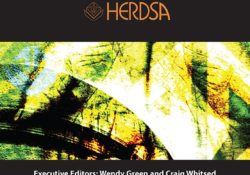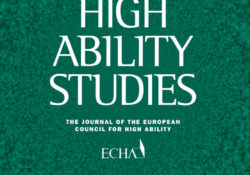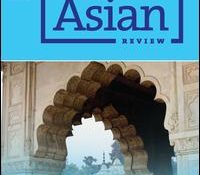
tandfonline.com har udgivet en rapport under søgningen “Teacher Education Mathematics”: ABSTRACT ABSTRACT Inclusive learning environments have been described as a crucial factor for fostering disabled students’ sense of belonging in higher education. However, few empirical studies have elaborated on how learning environments contribute to disabled students’ belonging. In this study, we have taken a socio-political approach and widen the theoretical understanding of ‘belonging’. We analyse three Finnish disabled students’ narrative interviews concerning their experiences of learning environments through a narrative approach. Our findings highlight the complex interplay of learning environments and belonging in the context of STEM and large class sizes. We discuss the role of active learning environments for supporting disabled students’ belonging. The narratives show how not belonging might be more productive for these students, as the learning… Continue Reading →
Like this:
Like Loading...
tandfonline.com har udgivet en rapport under søgningen “Teacher Education Mathematics”: Link til kilde
Like this:
Like Loading...
tandfonline.com har udgivet en rapport under søgningen “Teacher Education Mathematics”: ABSTRACT ABSTRACT In this study, we explore how interactions with faculty influence first-year geoscience students’ negotiations of belonging in a study programme. We situate the study within the field of retention and use the concepts of belonging and culture to analyse our empirical material, collected through ethnographic fieldwork. We explore how faculty–student interactions during geoscientific fieldwork and in an “interview exercise” give students access to explicit and tacit knowledge about doing geoscience research, the department culture and possible careers in geoscience. The analysis shows that faculty–student interactions offer important avenues for the students’ negotiations of how they belong in the study programme (who they are) and in assessing their future possibilities (who they want to become). However, while positive for… Continue Reading →
Like this:
Like Loading...
tandfonline.com har udgivet en rapport under søgningen “Teacher Education Mathematics”: ABSTRACT ABSTRACT Middle grades students have developmental needs that are unique from those of younger children and those in late adolescence. The purpose of this qualitative study was to explore how middle grades teachers create a sense of belonging with their students and the ways in which their knowledge of early adolescent development influences that process. Self-determination Theory, Stage-Environment Fit Theory, and the Model of Academic Engagement provided a framework for a qualitative investigation that involved interviews with five middle grades teachers. Participants emphasized four themes including the importance of an increased emphasis on community building activities, a need for modeling positive attitudes, the ability to encourage positive peer relationships, and making course content relevant to students’ lives. Implications for… Continue Reading →
Like this:
Like Loading...

tandfonline.com har udgivet en rapport under søgningen “Teacher Education Mathematics”: Abstract Abstract There are two competing stereotypes of gifted students: harmony theory (gifted students are well adjusted and successful in life) and disharmony theory (giftedness forms a threat to a harmonious development). In this context, the PISA 2012 data were used to explore middle-school students’ experiences in terms of sense of belonging, student–teacher relations and attitudes toward school concerning learning activities/outcomes. Fifteen-year-old students from 13 European countries were selected for this data-set (normative = 79,550, gifted = 1956). Student’s scores on the four scales were tested for significant differences with students from that same country. Tests revealed no significant differences for 55% of the comparisons, 40% of comparisons had positive effect sizes for gifted students, and 4% had negative effect sizes. The evidence presented… Continue Reading →
Like this:
Like Loading...




